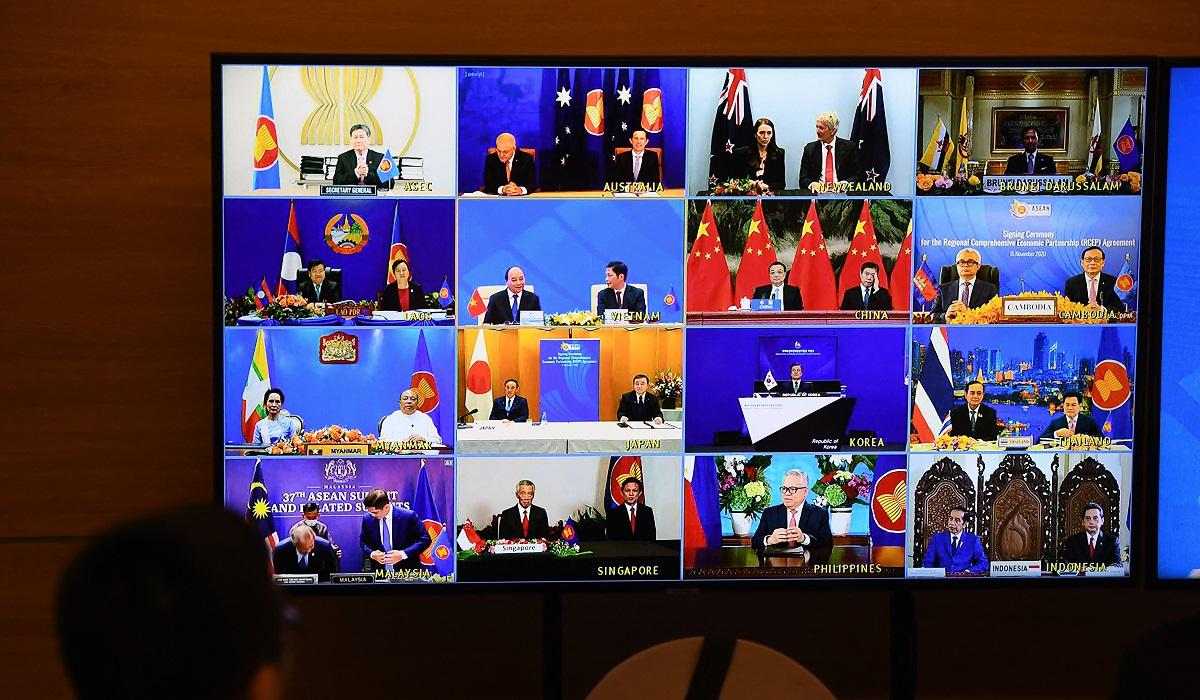Business groups warn RCEP exclusion would be ‘immensely costly’ to economy

Three of the country’s top business groups are making a final push for the Senate to ratify the country’s membership in the mega trade deal Regional Comprehensive Economic Partnership (RCEP), warning of adverse impacts to the economy if the Philippines is excluded from the economic bloc.
“Exclusion from RCEP would be immensely costly to our economy and our people. We can anticipate a significant decline in our exports to RCEP countries, which now account for nearly two-thirds (64 percent) of our total exports, as trade with us will logically be diverted to fellow members,” the Financial Executives Institute of the Philippines (FINEX), the Makati Business Club (MBC), and the Management Association of the Philippines (MAP) said in a joint statement.
Treaties or international agreements entered into by the government require Senate concurrence. The RCEP, a trade accord that involves the 10-member ASEAN along with China, India, Japan, South Korea, Australia, and New Zealand, was approved by the Palace in September last year and brought to the Senate for concurrence.
Senate President Vicente Sotto III, however, has raised doubts the RCEP will be approved by upper chamber before the 18th Congress adjourns this week.
The Senate is set to tackle it at the plenary on Wednesday—the last session of the upper chamber before the 18th Congress goes on sine die adjournment on June 3.
If the current Senate fails to concur with the RCEP, the fate of the mega trade deal will be in the hands of the incoming 19th Congress.
President-elect Ferdinand “Bongbong” Marcos Jr. said earlier he wants to review how the RCEP will impact the country’s agriculture sector as he argued that the farm sector should be in a competitive position before the country enters into another trade agreement.
Not ratifying the deal, the groups added, “would also make us even more unattractive to job-creating investments than we already are, as these would best be located in RCEP member countries to take advantage of free access to its vast market,” the groups added.
FINEX, MBC, and MAP noted that RCEP’s 15-member economies, consisting of the 10 ASEAN members plus Australia, New Zealand, China, Japan and South Korea, account for 30% of the world’s population and of global gross domestic product (GDP).
RCEP already took effect on January 1, 2022 after the ASEAN Secretariat received instruments of ratification or acceptance from six ASEAN-member states—Brunei Darussalam, Cambodia, Lao PDR, Singapore, Thailand, and Vietnam—as well as from non-ASEAN signatories Australia, China, Japan, and New Zealand.
“[I]t is a huge market that Filipino producers would gain preferential access to via membership in RCEP,” the business groups said.
“For the same reason, our membership could attract more foreign investments into the country from firms wishing to produce and sell to the large RCEP market,” the groups added.
The groups said that the RCEP will help micro, small, and medium enterprises expand market access, especially with more liberal rules of origin on traded products to qualify for trade concessions.
“It will also provide broader and cheaper alternative sources for inputs and reduce costs of doing business through improved trade facilitation, especially customs and trade clearance procedures,” the groups said.
FINEX, MBC, and MAP said that RCEP skeptics “should find comfort in the fact that little will immediately change in the country’s trade relations, since RCEP only reaffirms existing trade concessions we already have with all RCEP members via the ASEAN Trade in Goods Agreement (ATIGA) among ASEAN members and the ASEAN-Plus Free Trade Agreements with the rest.”
“Tariff elimination will take up to 20 years, giving ample time for us to shape up and achieve the competitiveness that will allow our producers to take full advantage of the vast market opportunities RCEP offers,” the groups said.
“Even so, our negotiators had excluded from tariff liberalization ‘sensitive’ farm products including swine and poultry meat, potatoes, onions, garlic, cabbages, sugar, carrots and rice, along with manufactured products like cement and certain steel products,” the groups added.
Economic think tank IBON Foundation has warned against ratifying the RCEP, noting that the Philippines' agriculture sector is grossly unprepared for further liberalization.
SINAG also pushed the Senate to reject the RCEP deal, citing the negative impact on the local agriculture industry.
To protect the local farm sector, the business groups urged the government to provide a substantial increase in the agriculture budget commensurate with that provided in our comparable Southeast Asian neighbors.
According to the Department of Trade and Industry (DTI), the RCEP is expected to generate a 10.47% increase in the country’s exports and 2.02% increase in real gross domestic product.
The DTI said rice and other agricultural products are protected from tariff reductions and eliminations under the RCEP.
“Like any free trade agreement, RCEP provides wide economic opportunities for our country, along with certain threats to uncompetitive industries, and individual producers and their workers,” the groups said.
And like in the other free trade agreements the country has joined (of which our country has the least, compared to Indonesia, Malaysia, Thailand and Vietnam), the overall economic gains in terms of net job creation, economic growth and price stabilization will well outweigh the costs,” the groups added.
FINEX, MBC, and MAP said the government has the responsibility to assist those adversely affected meaningfully and effectively, to allow them to achieve competitiveness or adjust to alternative products or livelihoods. — BM, GMA News



